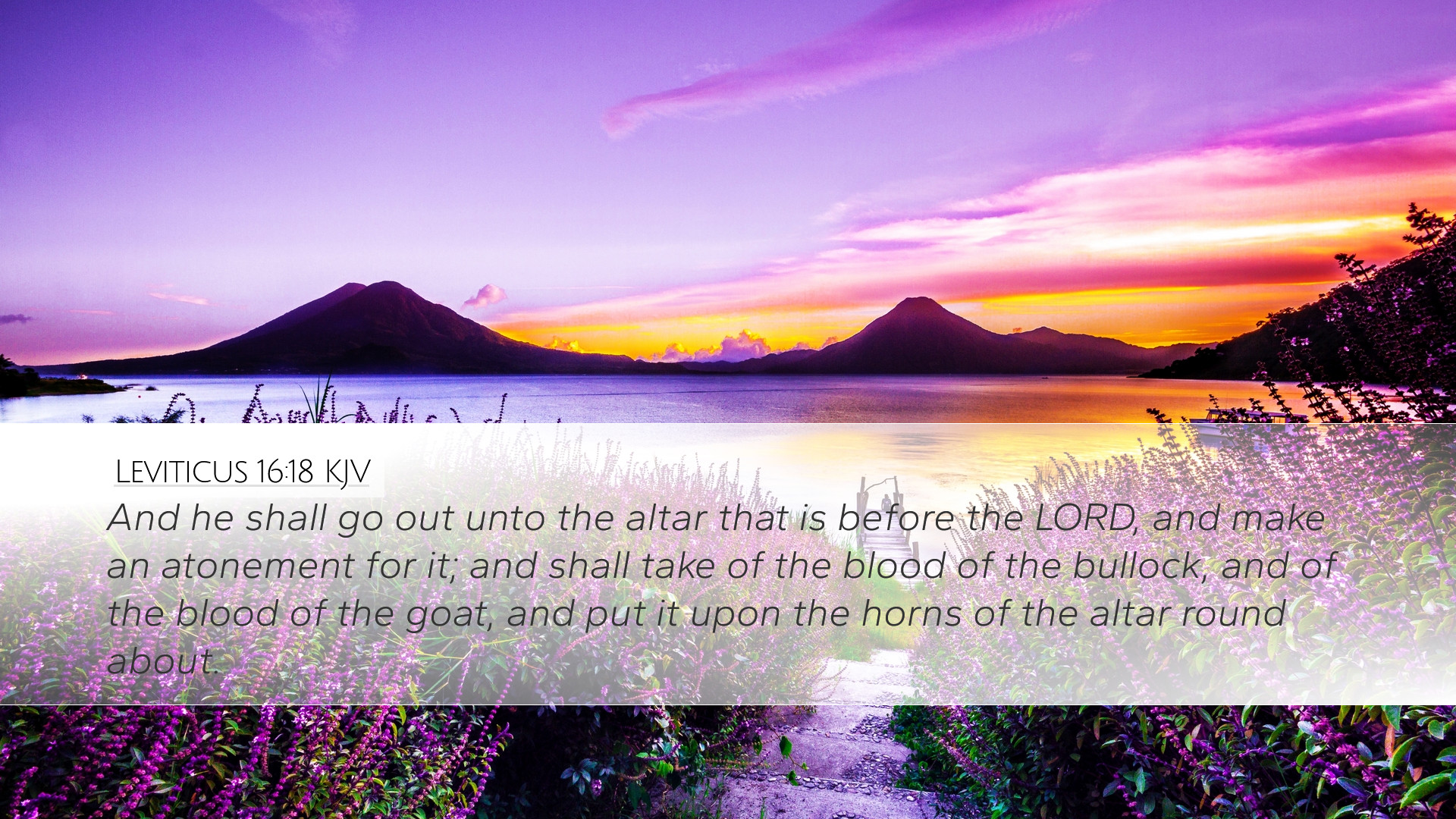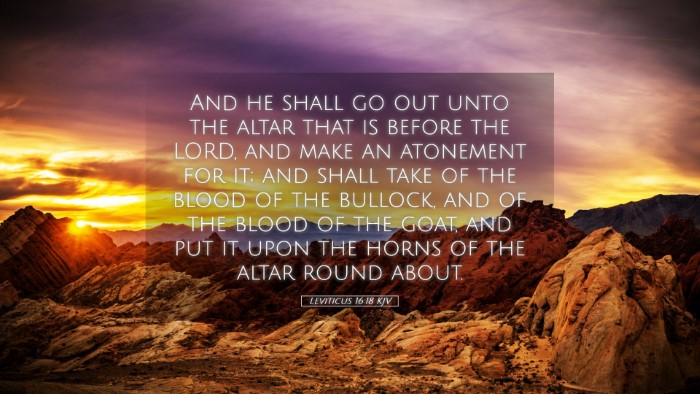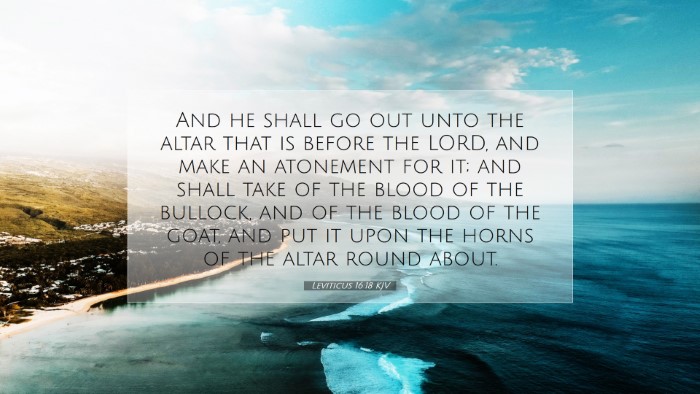Commentary on Leviticus 16:18
Leviticus 16:18 states: "And he shall go out unto the altar that is before the LORD, and make an atonement for it; and shall take of the blood of the bullock, and of the blood of the goat, and put it upon the horns of the altar round about."
Introduction
This passage is part of the Day of Atonement ceremony, a crucial ritual in the Israelite religious calendar. The act described here emphasizes the need for atonement not only for the sins of the people but also for the sanctification of the altar itself. Understanding this verse involves exploring its theological significance, historical context, and its application for contemporary faith.
Theological Insights
The shedding of blood in the sacrificial system symbolizes life and the seriousness of sin. Matthew Henry emphasizes that the blood of the sacrifices serves as a means of reconciliation between God and humanity. This verse illustrates the principle that even sacred objects, like the altar, require atonement because they serve as the meeting point between the divine and the human.
The Significance of the Altar
The altar represents a space of sacrifice and worship, a physical manifestation of the covenant between God and Israel. According to Adam Clarke, the act of atoning for the altar signifies that worship itself is not free from the contamination of sin. The altar must be cleansed to ensure that the sacrifices offered there are acceptable to God.
Common Themes in Sacrificial Systems
- Sin Affects All: The necessity of atonement for the altar teaches that sin has far-reaching consequences, impacting not just individuals but also communal and sacred spaces.
- Blood as Atonement: The use of blood further signifies the seriousness of sin and the grave cost of redemption; it serves as a precursor to the ultimate sacrifice of Christ.
- Divine Invitation: The act of atonement is an invitation from God for reconciliation, signifying that He desires a restored relationship with His people.
Historical Context
In the ancient Israelite context, the Day of Atonement was a solemn observance, as detailed in Leviticus 16:1-34. Albert Barnes highlights that this day was marked by fasting and repentance, as the high priest mediated on behalf of the people. This act of making atonement for the altar demonstrated the seriousness with which the Israelites regarded sin and its effects on their community and worship.
Practical Applications
For pastors and theologians today, this passage serves as a reminder of the sanctity of worship. Before entering into worship, believers are called to reflect on their hearts and the purity of their intentions. As Matthew Henry notes, true worship requires a heart that has been cleansed and made right before God.
Implications for Modern Worship
- Preparation for Worship: Just as the altar required atonement, we too must prepare our hearts to meet God. This can involve prayer, confession, and seeking to align our will with His.
- Community Confession: The collective aspect of Israelite worship reminds us of the need for communal acknowledgment of sin, encouraging fellowship and accountability among believers.
- Understanding of Salvation: The foreshadowing of Christ’s sacrifice in the sacrificial system deepens our appreciation for the New Covenant, reminding us that salvation is costly but freely given.
Conclusion
Leviticus 16:18, though situated in an ancient sacrificial system, continues to speak volumes about the nature of sin, the need for atonement, and the holiness of God. This verse challenges modern-day believers to consider the weight of their actions and the sacredness of worship. The insights of Matthew Henry, Albert Barnes, and Adam Clarke encourage a deep reflection on the significance of atonement, urging us to seek a personal and communal relationship with God that honors the sacrifice Christ made for us.


